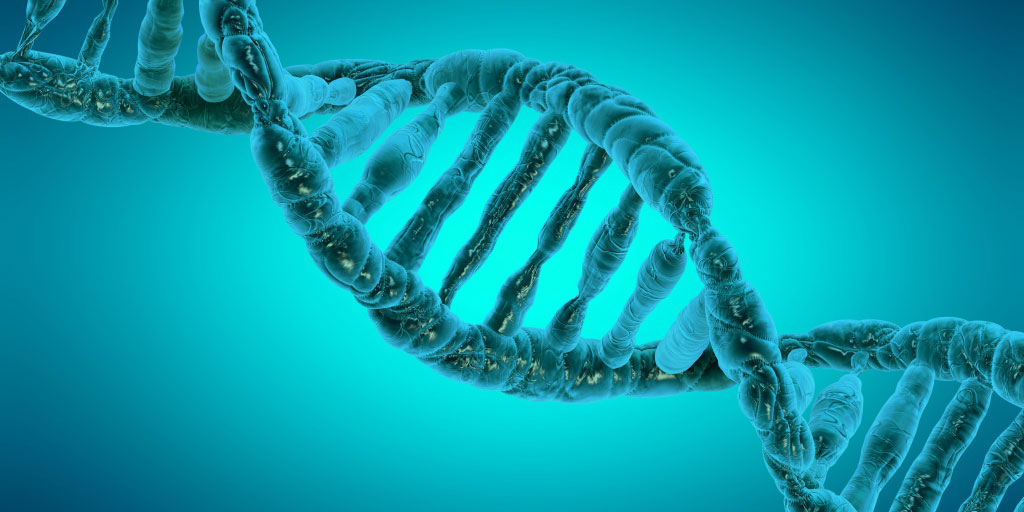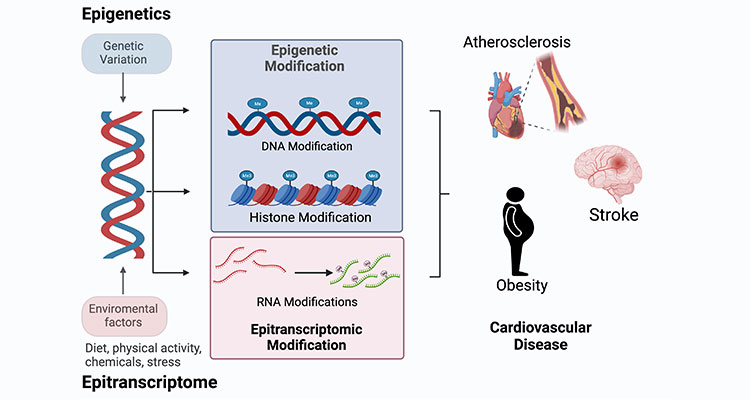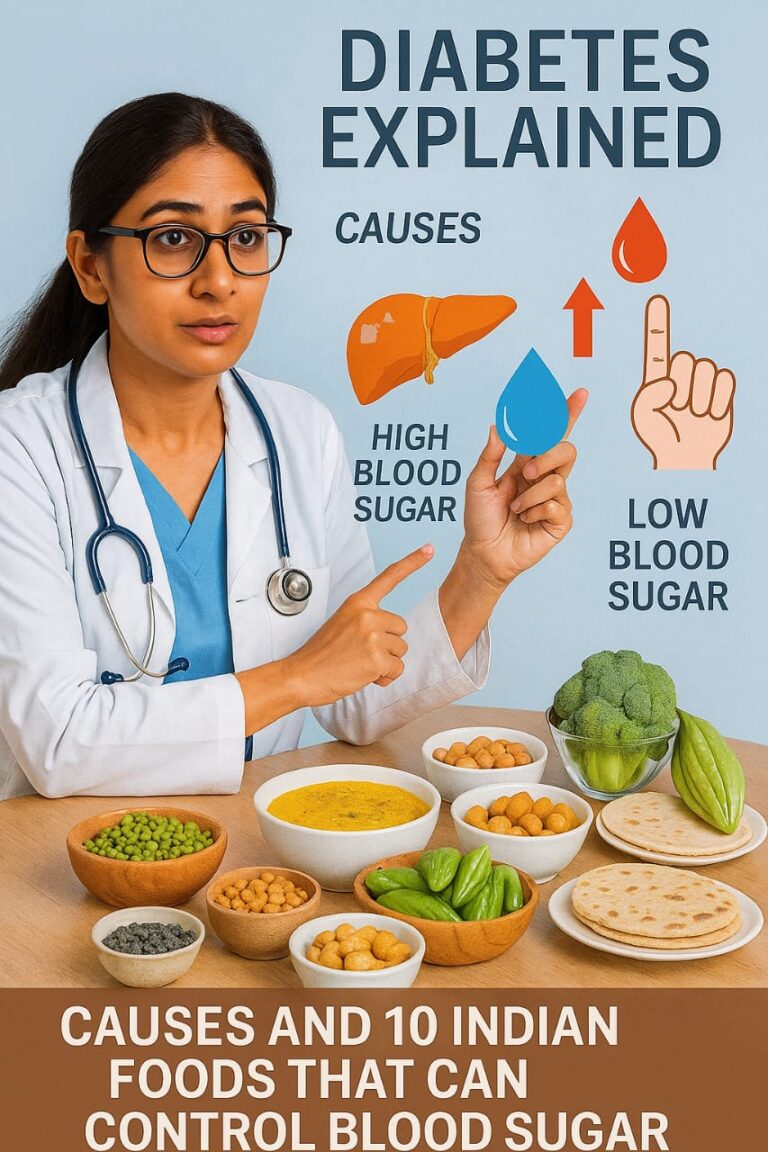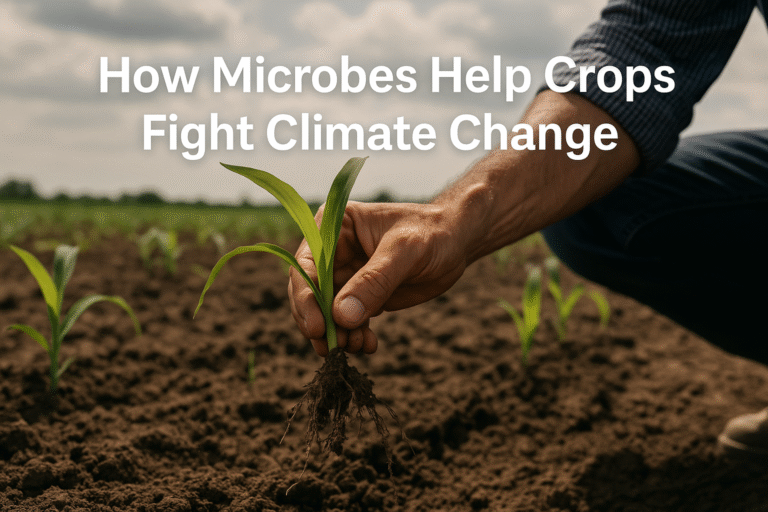

Epigenetic Echoes.
You’ve probably heard people say, “It’s in your genes.” And while that’s partly true, modern science tells us that there is a twist: your genes aren’t your destiny. Thanks to a fascinating field called epigenetics, we now know that your environment, lifestyle and even your emotions can influence how your genes behave, without actually changing your DNA. Our environment doesn’t just shape our behavior, rather, it can reprogram our genes. Epigenetics refers to heritable changes in gene expression that do not alter the DNA sequence itself. Epigenetic modifications (“epi” standing for “over” and “above”) occur independent of the genetic sequence and provide an additional level of hereditary information denoted as “epigenetic code”. These modifications determine how genes are read, and they’re influenced by external factors such as diet, toxins, stress, and lifestyle. Think of DNA as hardware and epigenetics as a modifiable, responsive and dynamic software. Epigenetics is all about these changes. It’s like flipping switches on your genes- some get turned on, others dimmed down depending on what your body is exposed to.
One major mechanism is DNA methylation, where chemical tags silence or activate genes. Let’s take food, for example. Some nutrients, like folate and B vitamins, donate molecules called methyl groups that attach to DNA and affect how genes are read. A healthy diet during pregnancy, rich in these nutrients, can actually lower the baby’s risk of developing conditions like asthma or diabetes later in life. And compounds found in turmeric, green tea, or broccoli? They can help activate genes that fight off cancer and reduce inflammation. In other words, not only does food fuel you, but also helps tell your genes what to do.
On the flip side, toxic exposures can disrupt things. Chemicals like Bisphenol A (BPA, often found in plastics) or heavy metals like arsenic and lead can interfere with your genetic control systems. They can switch on harmful genes or silence protective ones. What’s even more startling? These changes don’t always stop with you and can be passed down to your children or even grandchildren. Air pollution, too, doesn’t just harm your lungs. It can change how your DNA is marked, leading to higher risks of heart disease and respiratory issues. A systematic review examining early-life exposures to air pollution, heavy metals, and pesticides found that DNA methylation often mediates cognitive impairments and neurodevelopmental delays. Most studies showed statistically significant mediation thereby suggesting that epigenetics is an essential piece of the pollution‑cognition puzzle. And chronic stress? It’s more than just a mental burden. It can leave real biological scars. Studies in both animals and humans show that neglect or trauma in early life can lead to changes in stress-regulating genes, making people more vulnerable to anxiety, depression, or PTSD. So, how exactly does the environment change our genes without changing your DNA? The answer lies in epigenetic mechanisms, which act like switches and dimmers on our genetic blueprint. They do not rewrite the code but decide which parts of it are read, when and how strongly. There are three major tools the environment uses to reprogram gene activity:
- DNA Methylation- Think of it like a “mute button.” When a methyl group (–CH₃) attaches to a gene’s promoter region, that gene is silenced. Environmental triggers like arsenic or BPA can increase or reduce methylation in the wrong places, leading to misregulation.
- Histone Modifications- DNA wraps around histones, like thread around a spool. Chemical tags (like acetyl or methyl groups) on histones control how tightly DNA is wound and whether it can be read. Diet, exercise, and pollution can alter these tags, changing gene accessibility.
- Non-coding RNAs (ncRNAs)- These molecules do not code for proteins but help guide or block gene expression. Stress and toxins can disrupt how these RNAs operate.
But here’s the good news: many of these changes are reversible. That’s what makes epigenetics so exciting and empowering. Regular exercise, for example, can flip on beneficial genes that reduce inflammation and support brain health. So, when you move your body, you’re not just burning calories, but rewriting your body’s instructions for better health. Even more mind-blowing is that epigenetic changes can echo across generations. This phenomenon is called transgenerational epigenetic inheritance. During WWII, babies born during the Dutch famine had altered gene expression patterns and years later, their children did too, even though they hadn’t faced the same hunger. In animals, exposure to certain pesticides or chemicals during pregnancy led to fertility problems and stress sensitivity in future generations. Meta-analyses of gestational NO₂ and black carbon exposure demonstrated consistent DNA methylation marks in newborn cord blood. These epigenetic imprints are associated with developmental and respiratory risks during childhood which reinforces the importance of clean air for pregnant mothers and early-life protection.
Why does this matter? Because many diseases like obesity, diabetes, heart disease, and even cancer aren’t just caused by gene mutations. They’re often the result of long-term epigenetic shifts. For example, cancer cells often show global DNA hypomethylation (leading to genomic instability) and localized hypermethylation (silencing tumour suppressor genes). These shifts can occur long before disease manifests, making them potential targets for early diagnosis and treatment. With new tools called epigenetic clocks, researchers can now measure how fast your body is “aging” based on these patterns. Spoiler: things like pollution, poor diet, and chronic stress can speed it up.
The most hopeful part? You’re not stuck with these changes. By improving your diet, reducing stress, staying active, and avoiding harmful exposures, you can actually reshape your gene expression and possibly even slow down your biological aging. Unlike genetic mutations, epigenetic marks can be modified through diet, exercise, stress reduction, and targeted therapies. Already, drugs that target these mechanisms are being used in cancers like leukemia and more therapies are under development.
In short, epigenetics reshapes our understanding of heredity, health, and disease. It reminds us that while we inherit a genetic script, we also co-author it every day through our choices and environment. So no, your DNA isn’t a fixed script. It’s more like a draft that the environment edits every day. Understanding epigenetics gives us power, not just to improve our own health, but to leave a better legacy for generations to come. Although, epigenetics changes the way we understand health, it gives us back some control over it. The changes are not written in stone, but they are powerful enough to alter health outcomes across lifetimes and even generations. Understanding the how gives us the power to make better choices and someday, maybe even undo the damage. Epigenetics does not only revolve around inheritance. It makes us carry the weight of responsibility. While it can be unsettling to think we carry echoes of our ancestors’ trauma or exposure, it also empowers us. The environment we create today, including what we eat, breathe and stress over may influence not only our own health but that of future generations. That makes epigenetics not just a scientific field, but an ethical call: To care for the planet, for each other, and for those yet to be born.
Image source: https://www.niehs.nih.gov/health/topics/science/epigenetics https://icahn.mssm.edu/research/cardiovascular/focus/epigenetics



